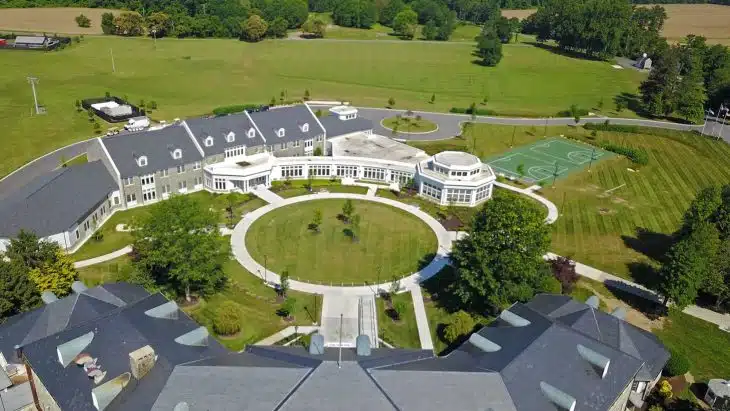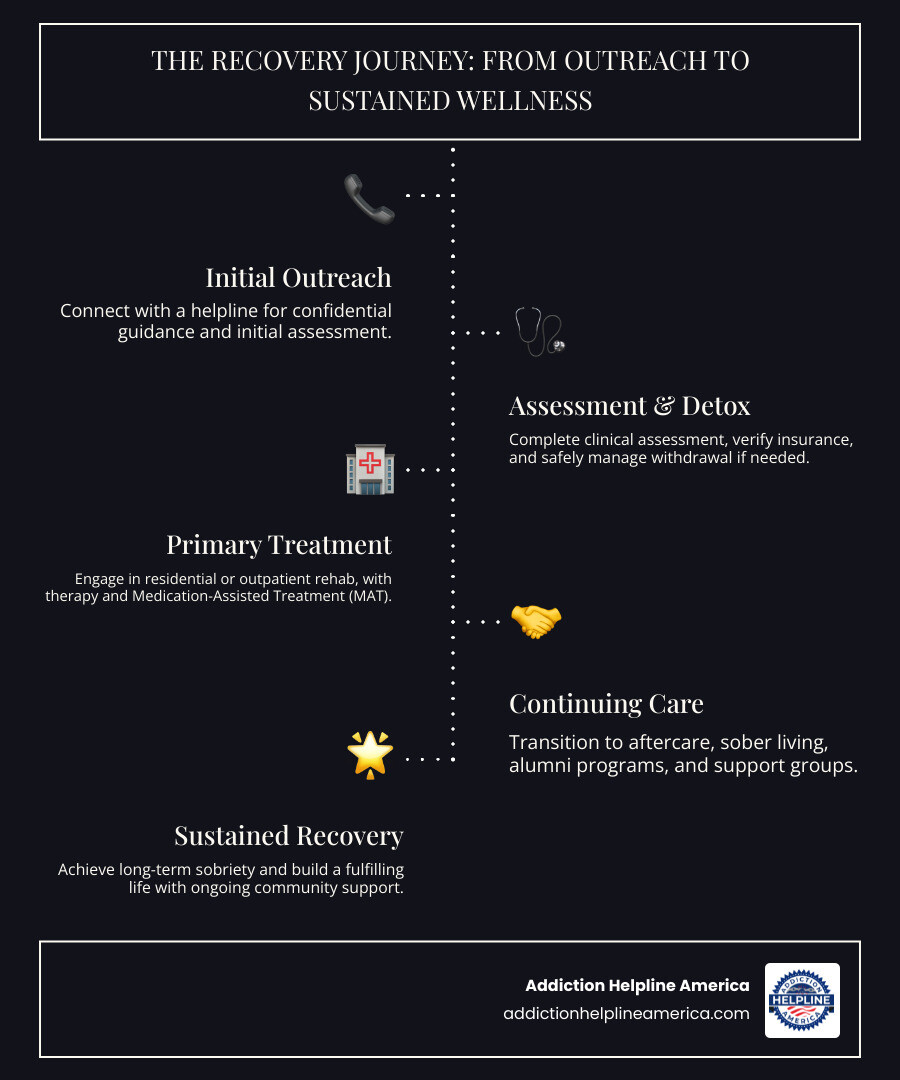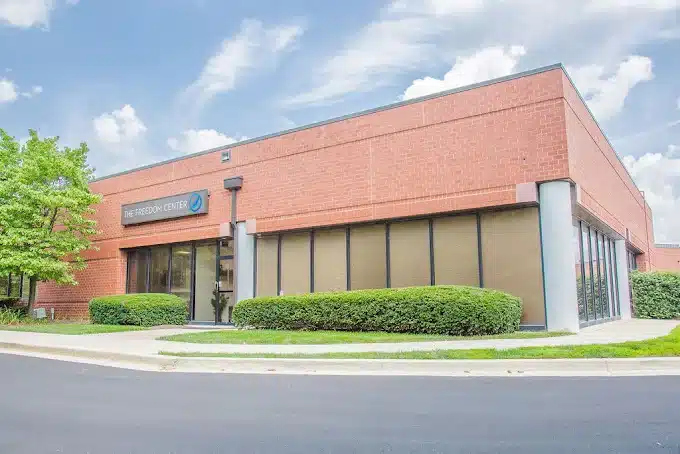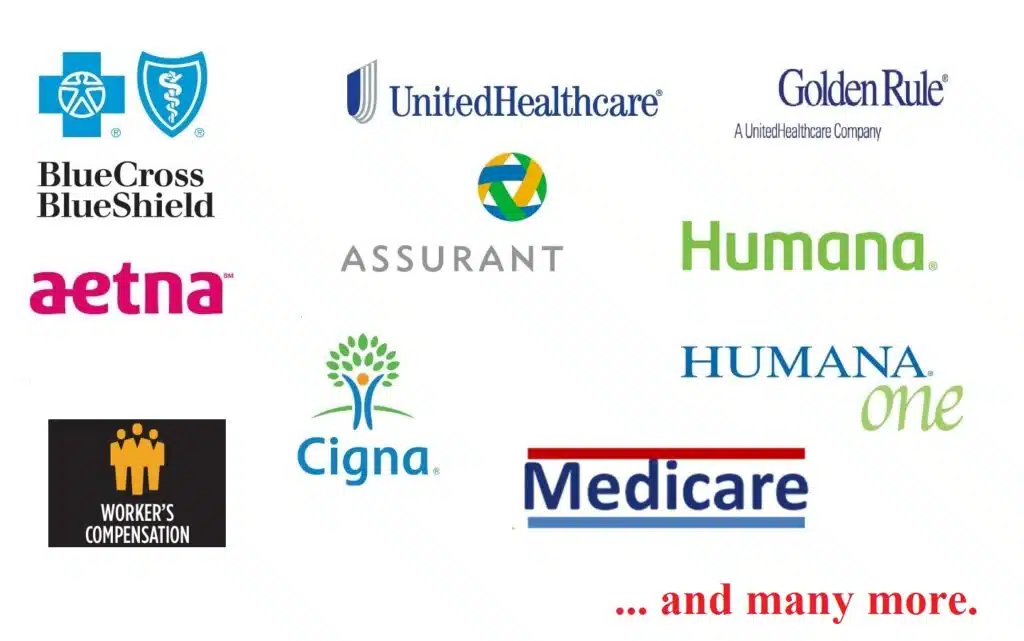
Finding Hope and Healing in Maryland’s Addiction Treatment Landscape
Treatment centers Maryland offer comprehensive care for individuals and families struggling with substance use disorders. Here’s what you need to know:
Quick Overview of Maryland Treatment Options:
- Medical Detox: Safe, supervised withdrawal management (5-10 days)
- Inpatient/Residential Rehab: 24/7 care in a structured environment (7-90 days)
- Partial Hospitalization Programs (PHP): Intensive daytime treatment (2-4 weeks)
- Intensive Outpatient Programs (IOP): Flexible therapy while living at home (6-8 weeks)
- Medication-Assisted Treatment (MAT): FDA-approved medications combined with therapy
- Specialized Programs: Dual diagnosis, trauma-informed care, gender-specific treatment
Why Maryland Treatment Matters Right Now:
The need for quality addiction treatment in Maryland is urgent. In 2023, 1,870 people died from drug and alcohol-related incidents in the state. Opioids were involved in 86% of these deaths, with fentanyl being a major contributor. Additionally, chronic alcohol use contributes to 2,482 deaths annually in Maryland.
These numbers represent real people, but there is hope: addiction is treatable. Maryland’s treatment centers provide science-backed therapies, compassionate care, and personalized recovery plans that work. From the Eastern Shore to Baltimore, centers offer everything from intensive residential care to flexible outpatient programs that fit around work and family commitments.
At Addiction Helpline America, we connect individuals and families to life-saving treatment centers Maryland offers. We provide free, confidential guidance 24/7 to help you find the right path to recovery. Our team understands the state’s addiction crisis and can match you with the appropriate level of care for your specific needs.

Must-know Treatment centers Maryland terms:
The Landscape of Addiction Treatment in Maryland
When searching for help with addiction, the options can feel confusing. The good news is that treatment centers Maryland offers a complete continuum of care, designed to meet you where you are. Treatment centers use the ASAM Criteria—a scientifically-backed system—to match your specific needs to the right level of care.
At Addiction Helpline America, we’ve helped thousands of people steer these choices. We know addiction is personal, and what works for one person may not be right for another. Let’s walk through the options available in Maryland.
Levels of Care in Maryland
Medical detox is often the first step, especially for heavy opioid, alcohol, or benzodiazepine use. Withdrawal can be dangerous without medical supervision. Maryland’s detox programs typically last 5 to 10 days, with medical professionals monitoring you 24/7 and providing medications to ease symptoms and ensure safety.
Inpatient or residential rehabilitation provides a 24/7 structured environment away from daily triggers. Programs usually run from 7 to 90 days. This level of care is effective for severe addiction, if outpatient treatment has been unsuccessful, or if your home environment is not supportive of recovery. You’ll live at the facility and participate in daily therapy to build a foundation for long-term recovery.
Partial Hospitalization Programs (PHP) offer intensive treatment for several hours a day, five to six days a week, without an overnight stay. Lasting 2 to 4 weeks, PHP is a great step-down from residential care or a starting point if you have a stable, sober living situation.
Intensive Outpatient Programs (IOP) provide even more flexibility, with therapy sessions three to five times per week for about three hours at a time. These programs typically run for 6 to 8 weeks and are ideal if you’re working, in school, or caring for family. Kolmac Outpatient Recovery Centers, for example, offers evening programs for working adults.
Standard outpatient treatment is the least intensive option, involving weekly individual or group counseling. It’s best for those with a strong support system and is often used as ongoing support after completing a more intensive program.
Call Now – Your Journey to Recovery Begins Today!

Take the first step towards a healthier life! Call now to connect with our compassionate team and start your recovery journey today. Your path to healing awaits!
Our recovery specialists are available 24/7 to provide support, and all calls are confidential and free. Reach out anytime – we’re here to help!
Evidence-Based Therapies and Specialized Services
The best treatment centers Maryland offers use therapies proven to work.
- Cognitive Behavioral Therapy (CBT) helps you recognize and change thought patterns that lead to substance use.
- Dialectical Behavior Therapy (DBT) teaches skills for managing intense emotions, tolerating distress, and improving relationships.
- Motivational Interviewing is a non-judgmental approach that helps you explore your own reasons for change.
- Dual diagnosis treatment addresses both addiction and co-occurring mental health conditions like depression or anxiety simultaneously, which is crucial for lasting recovery.
- Trauma-informed care creates a safe environment to process past trauma that may contribute to substance use.
Medication-Assisted Treatment (MAT)
For opioid or alcohol addiction, MAT combines FDA-approved medications with counseling and therapy. This approach is highly effective.
- For opioid use disorder, medications like methadone, buprenorphine (Suboxone), and naltrexone (Vivitrol) reduce cravings and withdrawal symptoms, giving your brain the support it needs to heal.
- For alcohol use disorder, medications like naltrexone, acamprosate, and disulfiram can reduce cravings and help prevent relapse.
As research confirms, long-term treatment and ongoing support lead to lasting recovery. At Addiction Helpline America, we listen to your situation and connect you with treatment centers Maryland that offer these evidence-based approaches. Our guidance is always free, confidential, and available 24/7.
A Closer Look: 10 Leading Treatment Centers in Maryland

Maryland’s addiction treatment landscape is diverse, with specialized programs designed to meet people where they are. The treatment centers Maryland offers aren’t one-size-fits-all; each brings a unique focus, from helping mothers with children to offering flexible evening programs for professionals.
This section highlights facilities across the state that represent the breadth of care available. Whether you’re seeking help for yourself, a teenager, or a loved one with complex needs, Maryland has resources ready to support your recovery.
1. Powell Recovery Center – Comprehensive Care in Baltimore, MD Rehab
Located in Baltimore, Powell Recovery Center offers outpatient services specializing in dual diagnosis programs and Medication-Assisted Treatment (MAT). Their integrated mental and behavioral health services treat co-occurring conditions like depression and anxiety alongside substance use.
2. Chrysalis House – Empowering Women in Crownsville, MD Rehab
Chrysalis House in Crownsville is a women-only residential program that allows pregnant women and mothers with young children to have their kids with them during treatment. They integrate child development services, keeping families together during the healing process.
3. Kolmac Outpatient Recovery Centers – Flexible Treatment in Towson, MD Rehab
Kolmac in Towson is known for its evening programs designed for working adults. They offer Intensive Outpatient Programs (IOP), ambulatory detox, and continuing care scheduled around work commitments, allowing you to maintain your livelihood while in recovery.
4. Board of Child Care – Youth-Focused Services in Pasadena, MD
This Pasadena facility specializes in residential treatment for adolescents. The Board of Child Care combines mental health support with educational programs, focusing on treating trauma and behavioral issues at their source to change a young person’s life trajectory.
5. Addiction Treatment Systems – A New Journey in Annapolis, MD Rehab
As a long-standing provider in Annapolis, Addiction Treatment Systems (ATS) offers outpatient services for adults with opioid use disorder. They provide Medication-Assisted Treatment using methadone, combined with individual and group counseling.
6. Balance Point Wellness – Holistic Healing in Bel Air, MD Rehab
Balance Point Wellness in Bel Air provides outpatient services and mental health counseling for adults, adolescents, and families. Their key feature is the integration of holistic therapies like yoga and mindfulness to strengthen the mind-body connection in recovery.
7. Columbia Addictions Center – Community-Based Support in Columbia, MD Rehab
This center in Columbia is a state-certified provider for court-ordered educational programs, including DUI/DWI programs and substance abuse assessments. They also offer comprehensive outpatient services for adults, turning legal requirements into an opportunity for change.
8. Pine Heights Treatment Center – Opioid Treatment in Baltimore, MD
Pine Heights offers accessible, community-based opioid treatment in Baltimore. They specialize in Medication-Assisted Treatment using both methadone and buprenorphine, paired with outpatient individual counseling for adults.
9. Queen Anne’s County Dept. of Health – Public Health Services in Centreville, MD Rehab
Located in Centreville, this public health department focuses on community-wide prevention and education alongside direct services. They offer prevention programs, outpatient treatment, and adolescent services to the general public.
10. Sheppard Pratt Day Program – Mental Health Focus in Lanham, MD Rehab
Renowned for its psychiatric expertise, Sheppard Pratt’s day program in Lanham serves adults with serious mental illness. They offer psychiatric rehabilitation, treatment for co-occurring disorders, and vocational services to help individuals achieve stability and independence.
At Addiction Helpline America, we know these facilities and can help you find the one that best suits your specific situation.
Call Now – Your Journey to Recovery Begins Today!

Take the first step towards a healthier life! Call now to connect with our compassionate team and start your recovery journey today. Your path to healing awaits!
Our recovery specialists are available 24/7 to provide support, and all calls are confidential and free. Reach out anytime – we’re here to help!
How to Choose and Pay for Treatment in Maryland
Choosing the right treatment centers Maryland offers is a critical decision. At Addiction Helpline America, we provide free, confidential guidance to help you find clarity and confidence in your choice.

Finding the Right Fit Among Maryland Treatment Centers
The right program is one that meets your unique needs. Consider the following factors:
- Personal Needs Assessment: What substances are involved? Are there co-occurring mental health conditions like depression or anxiety? What are your work, family, or legal obligations?
- Level of Care: The ASAM Criteria, used by reputable centers, helps determine the right intensity of care, from detox to outpatient.
- Location and Environment: Decide if staying close to home for family support or traveling to a new environment free of triggers is better for you.
- Staff Credentials: Look for licensed professionals (physicians, therapists) and accreditation from bodies like CARF, which signals high-quality standards.
- Evidence-Based Practices: Ensure the center uses proven therapies like CBT, DBT, and MAT for effective, lasting recovery.
- Program Specialization: Consider centers that focus on specific populations (e.g., women, youth) or substance use disorders (e.g., opioids) if it aligns with your needs.
What to Expect: The Intake and Admission Process
Knowing the steps can ease anxiety:
- Initial Phone Call: A confidential, supportive conversation to learn about the center’s programs.
- Clinical Assessment: A professional will evaluate your substance use history, health, and personal circumstances to create a personalized treatment plan.
- Insurance Verification: The admissions team will work with your provider to confirm your benefits and coverage. We can help you with this step.
- Travel and Packing: The center will provide instructions on what to bring (comfortable clothes, toiletries) and what to leave at home (unapproved items, internet devices).
Understanding the Costs of Treatment Centers in Maryland
Recovery is an investment, and many payment options make it accessible. Maryland ranks 31st nationwide in treatment affordability, with an average cost of $56,783, though this varies widely. Inpatient rehab averages around $50,000, while outpatient is closer to $8,000. Methadone treatment averages $7,000 annually. Costs depend on the facility, care level, and duration.
Payment options include:
- Private Insurance: Maryland’s parity laws require insurers to cover addiction treatment. Most major providers like Aetna, Cigna, and Blue Cross Blue Shield are accepted.
- Maryland Medicaid: Covers substance use disorder treatment for eligible individuals. Many facilities accept Medicaid.
- Medicare: Covers both inpatient and outpatient addiction treatment, though copayments may apply.
- Other Options: Many facilities offer sliding scale fees based on income, financial aid, or financing options. The Maryland Behavioral Health Administration provides information on publicly funded treatment.
Addiction Helpline America can help you verify insurance, understand your benefits, and find treatment centers Maryland offers that fit your budget. Financial barriers shouldn’t prevent you from getting help.
Frequently Asked Questions about Maryland Rehab
As you consider recovery, it’s natural to have questions. Here are answers to some of the most common ones we hear about treatment centers Maryland offers.

How long does rehab in Maryland typically last?
Rehab duration varies based on individual needs, substance use history, and recovery progress. There is no one-size-fits-all timeline.
- Detox typically lasts 5 to 10 days.
- Inpatient programs can range from 7 to 90 days, with longer stays often leading to better outcomes.
- Outpatient programs are more flexible. PHP may last 2 to 4 weeks, while IOP often runs 6 to 8 weeks.
The goal is a “continuum of care,” where you gradually step down to less intensive support as you grow stronger in recovery.
Can my family be involved in my treatment?
Yes, and it’s highly encouraged. Addiction affects the entire family, and healing together is powerful. Many treatment centers Maryland provides offer:
- Family therapy sessions to rebuild trust and improve communication.
- Family education programs to teach loved ones about addiction, boundaries, and how to support recovery effectively.
- Connections to support groups like Al-Anon and Nar-Anon, which provide a community for family members.
What happens after I complete a program?
Finishing a program is the beginning of a lifelong recovery journey. Effective aftercare is key to long-term success.
- Aftercare planning starts before you leave treatment and creates a roadmap for ongoing support.
- Sober living homes offer a supportive, substance-free environment to transition back to independent living.
- Alumni programs keep you connected to a community of peers who understand your journey.
- Peer support groups provide crucial ongoing support. Options include:
- 12-Step meetings like Alcoholics Anonymous (AA) and Narcotics Anonymous (NA)
- SMART Recovery, which uses cognitive behavioral techniques
- Recovery Dharma, which integrates Buddhist principles
- Gender-specific groups like Men for Sobriety or Women for Sobriety
Recovery is an ongoing process of growth. At Addiction Helpline America, we help you understand the full scope of support available for every stage of your journey.
Call Now – Your Journey to Recovery Begins Today!

Take the first step towards a healthier life! Call now to connect with our compassionate team and start your recovery journey today. Your path to healing awaits!
Our recovery specialists are available 24/7 to provide support, and all calls are confidential and free. Reach out anytime – we’re here to help!
Your Path to Recovery Starts Today
Reading this guide is a courageous first step toward change. We want you to know that recovery is achievable. It’s happening right now for thousands of people across Maryland who found help at the treatment centers Maryland offers and are now living healthier lives.
Maryland’s treatment landscape is comprehensive, with options to fit your life, schedule, and financial situation. Whether you need residential care, flexible outpatient services, or medication-assisted treatment, there is a path for you.
We know the first step is the hardest. Concerns about cost, time away from family, or simply not knowing where to begin are valid. That’s why Addiction Helpline America exists. We provide free, confidential guidance to help you steer your options. Our team will listen to your needs and match you with the right program from our network of quality facilities.
Every recovery journey starts with a single decision to seek help. You deserve support, and your future deserves a chance. The compassionate, evidence-based care you need is available, and we’re ready to help you find it.
Find a rehab center today and let us walk this path with you. Your recovery starts with one call.
Our helpline is 100%
free & confidential
If you or someone you care about is struggling with drug or alcohol addiction, we can help you explore your recovery options. Don’t face this challenge alone—seek support from us.
Programs
Resources
Will my insurance
cover addiction
treatment?
We're ready to help
Find the best
drug or alcohol treatment
center
Are you or a loved one struggling with addiction? Call today to speak to a treatment expert.















